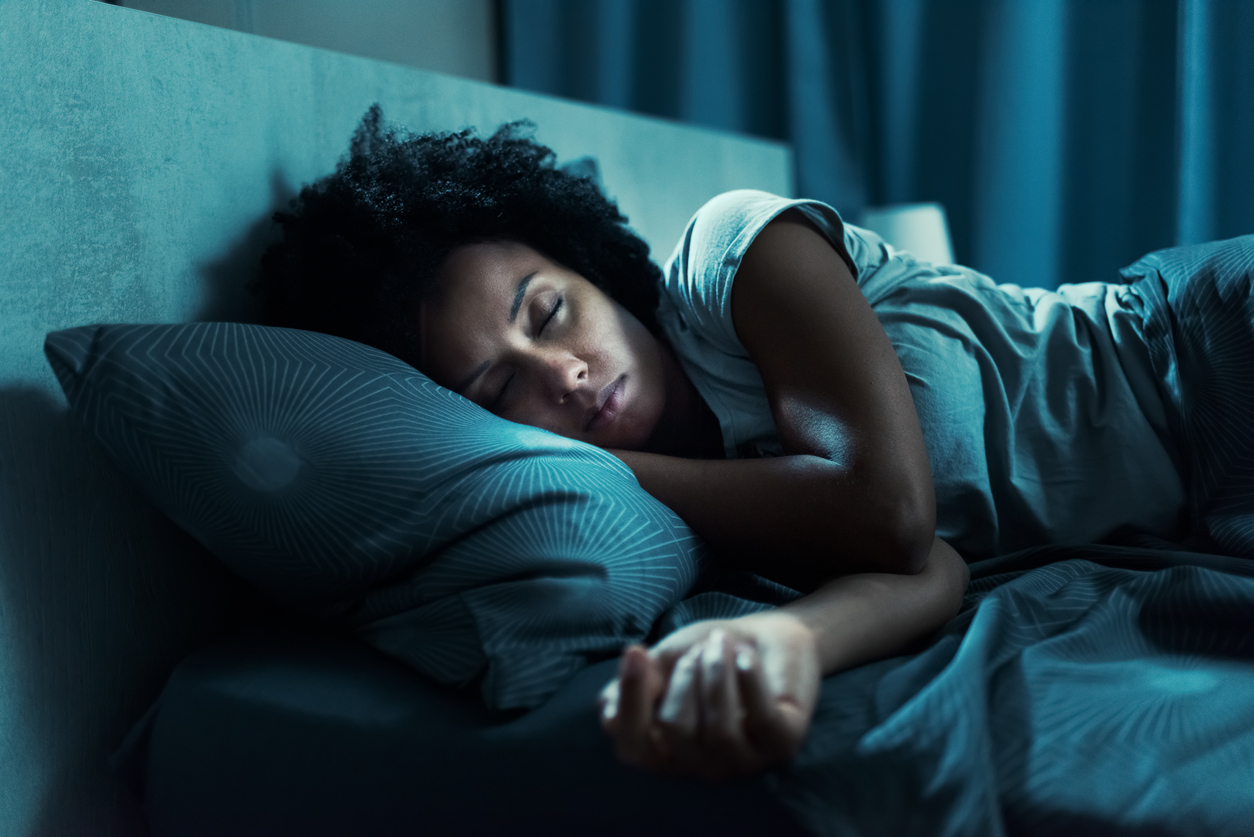Kathryn Pinkham, insomnia specialist and CBT-I practitioner, looks at the link between sleep, fitness and motivation, and why poor sleep could be hurting your business and your clients’ success.
As a personal trainer, you are likely aware of how sleep, fitness and motivation are interlinked – but are you aware of just how much poor sleep might be affecting your clients’ progress and, ultimately, your business?
Sleep is vital for weight loss, recovery, muscle growth and performance and, with one in three people struggling with poor sleep, it’s likely at least some of your clients are affected. When your clients aren’t sleeping well, they may not perform at their best and they may struggle with staying motivated to stick to your workout plans. And worse, no matter how hard they push in their workouts, they might not be seeing the best results if their sleep isn’t optimised, which makes them a flight risk!
How sleep impacts weight, fitness and motivation
Sleep is not just a passive activity – it’s a crucial process for muscle repair, hormone regulation and overall energy management. When your clients are sleep deprived, it can lead to:
- Increased hunger and cravings: Poor sleep can increase levels of ghrelin, the hunger hormone, and decrease leptin, which signals fullness. This can lead to overeating, making poor food choices and struggles with weight management.
- Decreased workout performance: Lack of sleep negatively impacts co-ordination, strength, endurance and recovery. Clients may feel sluggish and unable to perform at their usual intensity, leading to frustration.
- Reduced motivation: Chronic sleep deprivation can leave clients feeling unmotivated and exhausted, both physically and mentally. This can make it harder for them to stick to workout routines, eat healthily and maintain a positive attitude towards their fitness goals.
As a personal trainer, this means that, no matter how great your training plans or meal plans are, poor sleep could still be holding your clients back from achieving their fitness goals.
The good news is that you can easily help them to improve their poor sleep!
You have likely heard of the same old advice around reducing caffeine, less screen time and relaxation before bed, but I wouldn’t recommend giving a tired client this advice – they’ve heard and tried it all before and it won’t make a bit of difference.
Sleep hygiene (the term for this advice) has no evidence to show it can help improve a sleep issue. It is good lifestyle advice and can help them feel better in general, maybe even less tired, BUT it won’t help them to improve an already broken sleep pattern.
Here are some evidence-based tips, based on my work, that will help (and will make your clients love you!).
Three sleep tips to share with your clients
-
Don’t go to bed too early
It might sound counterintuitive but going to bed too early – even if you’re feeling exhausted – can actually make things worse.
When you’re sleep deprived, it’s tempting to crash early to ‘catch up’ on rest. But going to bed too early can actually decrease your body’s natural ‘appetite for sleep’. You may find that, even though you’re in bed, you can’t fall asleep or you wake up in the middle of the night wide awake.
Instead, encourage your clients to stick to a regular sleep schedule with a later bedtime and to set an alarm a little earlier (even if they are awake early). This helps to build a higher ‘drive’ for sleep and a stronger connection between bed and sleep, making it easier to fall asleep and stay asleep.
-
If you’re awake at 3am, don’t battle it – leave the room
Probably the most common sleep issue is lying awake at 3am with a racing mind.
If your clients wake up in the middle of the night and can’t fall back asleep, advise them not to stay in bed and ‘try’ to sleep. When we lie in bed frustrated and irritated it creates a negative connection between the bed and anxiety, making it harder to sleep in the future.
Instead, encourage them to get up and leave the bedroom. They can do something relaxing, like reading a book or watching TV, anything to move focus away from sleep. When they start to feel sleepy again, they can return to bed. The goal is to break the cycle of frustration and anxiety associated with being awake at night, which in turn can improve overall sleep quality.
-
Help them focus on other ways to boost energy
Many people who struggle with sleep spend all their energy focusing on how to get more sleep to feel better, but this can backfire as the more vigilant we are about sleep, the more anxiety is triggered, leading to even worse sleep.
Instead of focusing solely on sleep, encourage your clients to explore other ways to boost their energy levels. For example:
- Adjust workout times: If they’re feeling exhausted in the morning, it might not be the best time for a high-intensity session. Encourage them to train at different times of the day to see if they feel more energised during a different part of the day.
- Modify workout intensity: If your clients are feeling tired or have had poor sleep, suggest a less-intense workout or a recovery-focused session. This helps prevent burnout and reduces stress on the body. It will also make them less likely to give up if you align their targets with the amount of rest they are getting.
- Eat well and stay hydrated: Encourage clients to focus on proper nutrition, which plays a massive role in energy levels and overall performance. Staying hydrated is key, as dehydration can lead to fatigue and poor physical performance.
Focusing on these other aspects of health can help your clients feel more energised during the day without the added pressure of ‘needing’ more sleep. When clients are less fixated on sleep, they’re more likely to have a relaxed mindset, which can improve their overall rest and performance.
If you are interested in adding sleep to your toolkit, then join my 2-hour course, How to Optimise Sleep Using Cognitive Behavioural Therapy for Insomnia. The course is worth 2 CIMPSA points.








